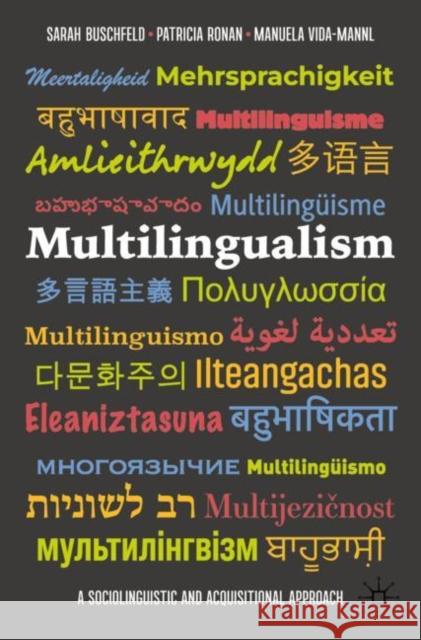Multilingualism: A Sociolinguistic and Acquisitional Approach » książka
Multilingualism: A Sociolinguistic and Acquisitional Approach
ISBN-13: 9783031284045 / Angielski
This textbook takes a broad perspective on multilingualism, using a sociolinguistics and acquisition-informed approach that treats multilingualism not solely as the mastery of two or more well-defined language systems, but rather as a continuum of linguistic repertoires and resources to be used in different settings and combinations. The authors introduce traditional aspects of multilingualism - including historical dimensions, societal and individual multilingualism, aspects of identities, ideologies, education, and language policies - before going on to examine newer manifestations such as multilingualism in migrant and refugee contexts, in new media, pop music and linguistic landscaping, as well as the notion of grassroots multilingualism. This textbook will be an ideal resource for postgraduate students of linguistics and multilingualism, as well as advanced undergraduate students who are looking for a nuanced and holistic approach to the topic.
This textbook takes a broad perspective on multilingualism, using a sociolinguistics and acquisition-informed approach that treats multilingualism not solely as the mastery of two or more well-defined language systems, but rather as a continuum of linguistic repertoires and resources to be used in different settings and combinations. The authors introduce traditional aspects of multilingualism - including historical dimensions, societal and individual multilingualism, aspects of identities, ideologies, education, and language policies - before going on to examine newer manifestations such as multilingualism in migrant and refugee contexts, in new media, pop music and linguistic landscaping, as well as the notion of grassroots multilingualism. This textbook will be an ideal resource for postgraduate students of linguistics and multilingualism, as well as advanced undergraduate students who are looking for a nuanced and holistic approach to the topic.











